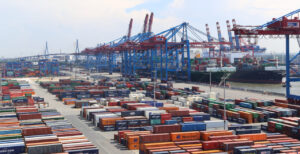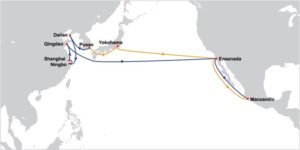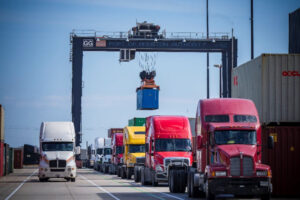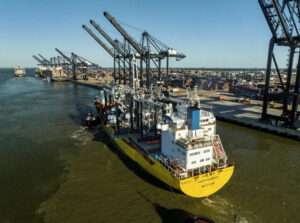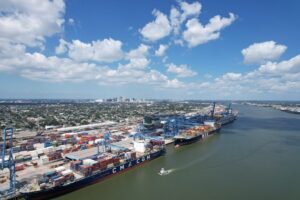Regina Asariotis, Chief of Policy and Legislation for the UN Conference on Trade and Development (UNCTAD), has warned that trade is at risk if ports do not become “climate change proofed”.
Speaking at a meeting to address the challenge of climate change, alongside the COP24 global climate summit in Katowice, Poland, Asariotis said: “The hardest hit areas, coastlines, will affect us all since the lion’s share of trade itself is managed through international shipping and ports.”
UNCTAD has found that over 60% of goods are loaded and unloaded in developing countries, which are most at risk from the potential impact of storms, record temperatures, heatwaves, droughts, and devastating rain on maritime transport and infrastructure.
Simon Bennett discusses how shipping companies can respond to environmental regulations in a recent Port Technology technical paper
According to a statement, the possibility of damage, delay and disruption across closely-linked global supply chains means that addressing the issue of global warming is of strategic economic importance.
Asariotis continued: “Currently there is a disconnect between the evidence from the scientific community and the pace of policy change made by governments.
“Our research aims to help bridge this gap by providing evidence-based information to help policymakers understand the most at risk areas and what kind of policy interventions are needed, now, to manage the risk, adapt and reduce the potential economic impacts.”
#SPSC18 “All ports are different and impossible to measure, but that shouldn't prevent us from trying”
Vincent Valentine, @UNCTAD, believes we must strive to discover best practices for the entire #Maritime industry. pic.twitter.com/4UE5mtoBqS
— Port Technology (PTI) (@PortTechnology) October 3, 2018
The UN’s ninth “Sustainable Development Goal” calls on the global community to build resilient infrastructure, promote inclusive and sustainable industrialization, and foster innovation.
In terms of maritime transport, policy action regarding climate change has focused mainly on the mitigation and control of greenhouse gas emissions (GHGs), instead of the impacts of climate variability and change that are already being felt.
“What is needed are effective adaptation measures and policies, implemented now to manage the direct and indirect impacts on maritime transport infrastructure and services.
“Changes in sea-level, temperature, humidity, precipitation and extreme storms, floods and other climatic factors are likely to affect seaports as well as all connecting transport infrastructure and the global network of supply-chains. Understanding the impacts and developing effective adaptation measures is critical.”



